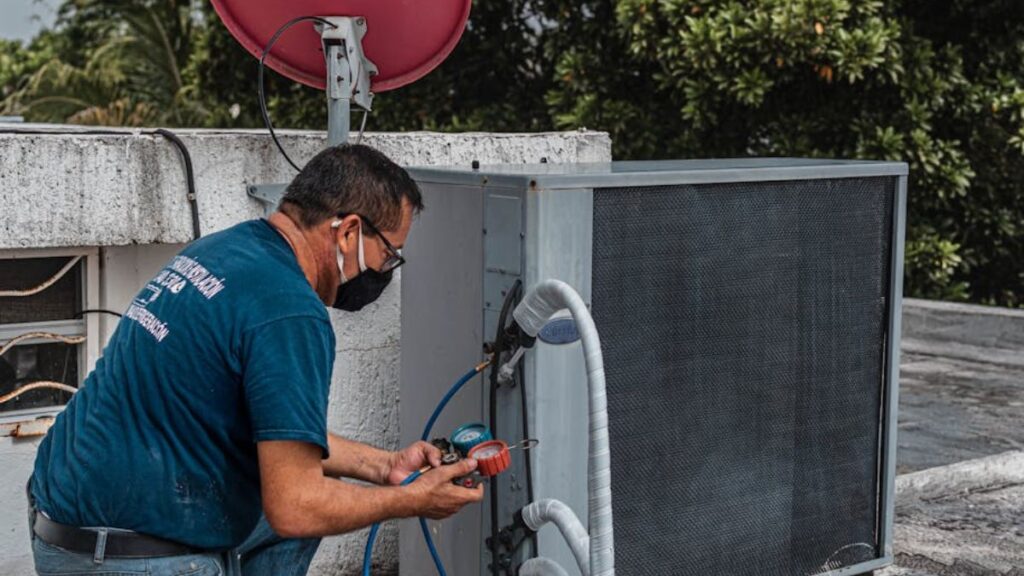As a homeowner, your HVAC system is one of the most essentia investments in your home. It works tirelessly year-round to keep you comfortable, whether beating the summer heat or staying cozy in winter. Yet, like any mechanical system, HVAC units don’t last forever. Their performance can diminish over time, and eventually, they’ll need costly repairs or a complete replacement. Fortunately, with proper care and a few simple practices, you can extend the lifespan of your HVAC system, ensuring it operates efficiently for years to come. Here are some essential tips to help you get the most out of your HVAC system.
Schedule Annual Professional Maintenance
Even if you’re diligent about changing filters and cleaning your system, professional HVAC maintenance is essential to identify and address hidden issues. During an annual service, a trained technician will inspect all components of your HVAC unit, looking for signs of wear, loose connections, and other potential problems. This preventive measure allows small issues to be corrected before they lead to more severe and expensive repairs.
Professional heating and air service is vital to keeping systems running effectively year-round for residents in areas with hot summers and chilly winters, such as Dallas. If you’re looking for trusted HVAC Dallas experts, many companies provide annual tune-ups, which can help prolong the life of your system. With a yearly check-up, you can rest assured that your HVAC system will be in top shape no matter the season.
Regularly Replace or Clean the Air Filters
Air filters are your HVAC system’s first defense against dust, dirt, and allergens. When these filters get clogged, the HVAC system has to work harder to push air through, straining the unit and increasing energy usage. Not only does a dirty filter reduce air quality, but it also shortens the lifespan of your system due to unnecessary wear and tear.
Ideally, air filters should be replaced or cleaned every one to three months, depending on the filter type and how frequently the system is used. In peak seasons, such as winter and summer, you might need to replace them more often. Regularly swapping out your air filters can significantly reduce strain on your system and keep it functioning smoothly, ultimately adding years to its life.
Keep Your Outdoor Unit Clean and Clear
The outdoor unit, the condenser, is constantly exposed to the elements. Over time, leaves, dirt, and other debris can accumulate around it, obstructing airflow and causing the unit to overheat. A blocked condenser coil forces the HVAC system to work harder, which can shorten its lifespan and increase utility bills.
Check around your outdoor unit regularly, clearing away leaves, branches, and debris at least once a month, especially in the fall. Also, gently wash the condenser coils a few times each year. These small steps improve airflow, boost efficiency, and help your HVAC system last longer.
Optimize Your Thermostat Settings
Your thermostat settings directly affect your HVAC system’s workload. Frequent temperature changes cause excessive cycling, which can wear out the system faster. Keeping a consistent temperature, especially when you’re away, reduces strain and extends the system’s lifespan.
Investing in a programmable thermostat lets you set specific temperatures for different times of the day. Smart models can even learn your routine and adjust automatically to maximize efficiency. Minimizing temperature fluctuations can make your HVAC system healthier and reduce energy costs.
Improve Home Insulation
Good insulation keeps conditioned air inside, reducing the workload on your HVAC system. This means the system works less to maintain a comfortable temperature, helping it last longer. Without proper insulation, your HVAC has to compensate for temperature changes, leading to faster wear.
Inspect your home’s windows, doors, and attic for air leaks. Sealing leaks, adding weather stripping, or upgrading to energy-efficient windows are all simple ways to improve insulation. When your home can maintain a stable temperature, your HVAC system will thank you for lasting longer and running more efficiently.
Avoid Overworking the System
HVAC systems are designed to operate efficiently within set limits, and overuse can strain their parts. Even in mild weather, running the system constantly wears it down faster. To avoid this, turn off the HVAC when not needed and rely on fans, curtains, or other methods to maintain comfort.
If your home is large, consider using a zoning system that divides it into different areas with separate controls. This way, you can avoid heating or cooling empty rooms, reducing the workload on the HVAC system and extending its life. Zoning also provides personalized comfort in each room, making your household more energy-efficient.
Your HVAC system is a major investment, so extending its lifespan should be a priority. Small, consistent maintenance steps can greatly affect its longevity and efficiency. With routine care and attention to airflow and insulation, your system will last longer and keep your home comfortable. Plus, an efficient HVAC saves you money and reduces your environmental impact.







